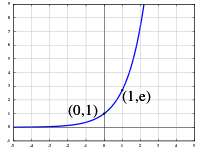of course it comes down to the age old question of chance vs intelligent design. One that will see no conclusive answer regardless of how ever long it is debated.I don't think that is a logical conclusion. What if we use the example of species that did not survive? Was there a grand plan at work for them? How about the Neanderthals?
As you correctly indicated "but merely cause and effect yet it is causes and effect " (i.e. constant change) from which an Implicate Order emerges. Some things die, some things live. No plan.
It's as simple as that, IMO...
If we were dealing with humans only I might tend to agree.
But we are not and no creature except humans will consciously choose to live in inhospitable environments and be forced to "strive" to survive. For all animals except humans and their pets survival in any kind of environment is hard enough. When it gets too hot, there is mass migration to cooler areas, when it gets too cool there is mass migration to warmer climates. And soon we may see a human migration away from coastal plains due to rising sea-levels. That is also part of striving to survive.
Only humans and a few insects can manipulate their environment to make inhospitable areas
survivable. Ants and Termites have practised agriculture for a hundred millions of years, long before humans appeared on the scene. In fact, some of the labor force of a termite hive never gets to see daylight. They are confined to underground gardens for their entire lifespan. Of course they do have plenty to eat...
Thus while it may seem there is a grand plan, there is no such things, but long term probabilistic events. If you play the lottery long enough you're bound to win something. That does not count as a prior existing greater plan. It's just luck spread out over trillions of natural tries over a span of millions or even billions of years.
All this may seem like a plan but in reality it is just a hierarchy of natural mathematical physical functions which behave in a pseudo-intelligent consistent manner.
ions.
The word "evolution" in itself implies something. Something consistent and persistent.
It is not chance that things evolve nor is it chance that the future exists.
The word change implies neither improvement nor degradation however the word evolve always suggests improvement regarding sustainability.
Is it chance that evolution exists?
Can you define the word chance and scientifically prove that randomness actually exists?
Can you prove randomness as "real" using the scientific method?
Or is it just humans egocentric way of accommodating that which it can not pre-determine?
I believe the current thinking suggests that the Neanderthal evolved into Homo-Sapiens and it is suggested that Homo-Sapiens (HS) may yet evolve into something else again depending on how HS deal with evolutionary challenges to achieve sustainable success as a species. Especially now with the issue of climate change. Either we achieve a more environmentally sustainable position or we will become extinct as a race.I don't think that is a logical conclusion. What if we use the example of species that did not survive? Was there a grand plan at work for them? How about the Neanderthals?
...and of course you are entitled to your opinion....constant change over eons but always towards sustainability like the arrow of time always in one direction.As you correctly indicated "but merely cause and effect yet it is causes and effect " (i.e. constant change) from which an Implicate Order emerges. Some things die, some things live. No plan.
It's as simple as that, IMO...
Is the direction of time considered chance?
Also,
Is their any evidence of devolution? Not that I am aware of...so I ask: why not if only chance was at play? Surely if only chance, we would observe sustainable devolution in nature?
We have an arrow of time, always forward and like wise with evolution towards sustainability.
All this may seem like a plan but in reality it is just a hierarchy of natural mathematical physical functions which behave in a pseudo-intelligent consistent manner.
ions.
There are a number of problematic issues with this approach IMO
Mathematics is a Human mind game only, seeking to imitate the innate intelligence of that which we observe and what surrounds us. Chance is also a mathematical enigma of an egocentric mind.
There is a question and answer riddle that can be used to demonstrate egocentricity and delusions of grandeur.
Mirror mirror on the wall
Q. Who or what is by far the greatest artist of them all?
or, regarding your post,
Q Who or what is the greatest mathematician of them all?
When seeking an answer to the above we may start to realized that our claim to fame is merely due to plagiarism, mimicry, imitation and when you look at ourselves with the humility the answer inspires you start to realize a greater truth about who and what we are.

Last edited:




